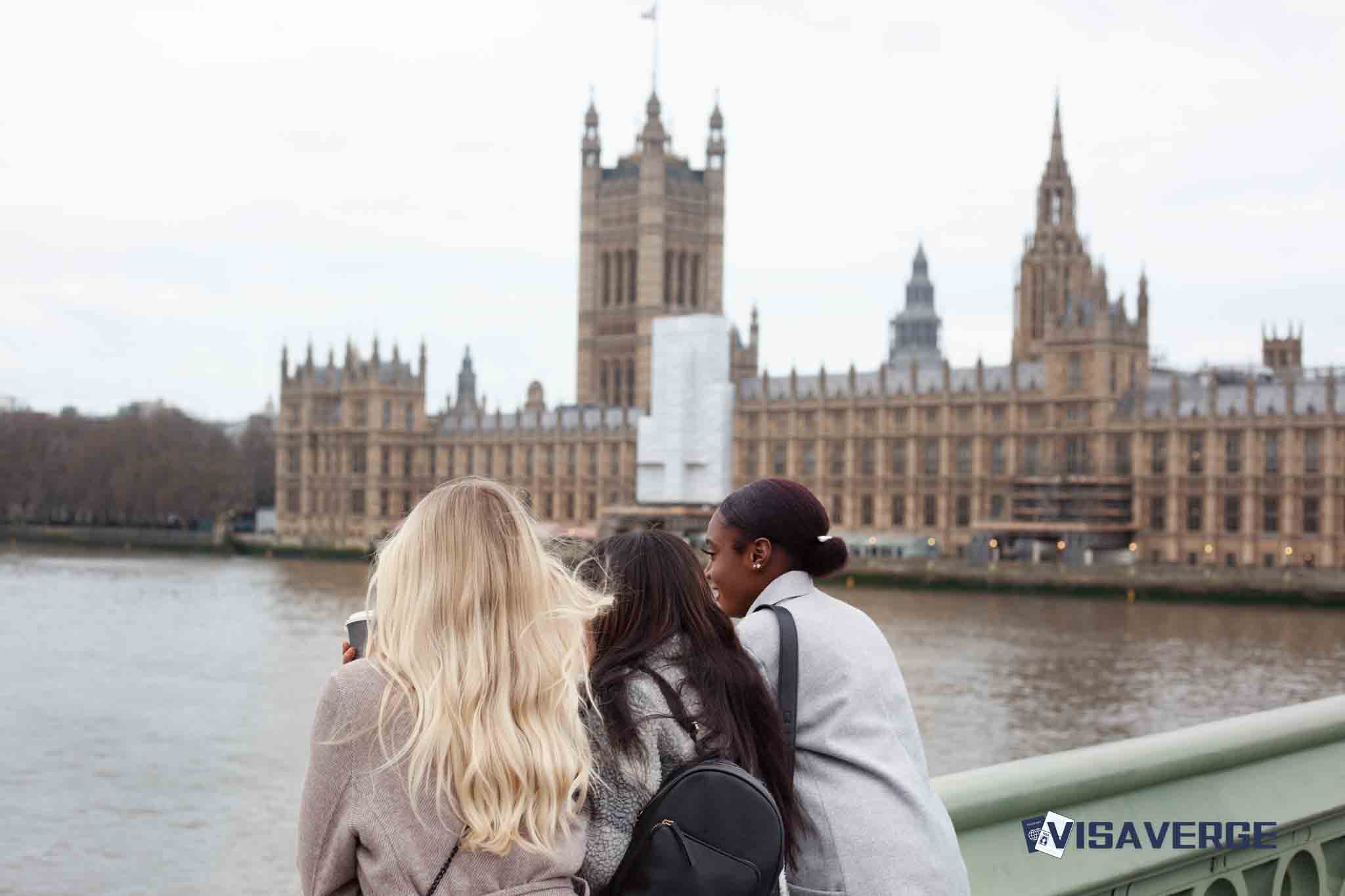Your Guide to Navigating the UK’s Public Healthcare System
Moving to the UK brings a myriad of exciting opportunities – from experiencing the rich British culture to enjoying the perks of living in a country with a public healthcare system renowned for its comprehensive coverage. Whether you’re planning a short visit, applying for a work visa, or settling down permanently, understanding how to navigate UK healthcare services ensures peace of mind. In this guide, we’ll sail through the essential steps of accessing NHS medical care to help you prepare for your UK journey.
Understanding the National Health Service (NHS)
The National Health Service (NHS) is the umbrella term for the UK’s public healthcare system, providing a wide range of healthcare services, including general practitioner (GP) visits, emergency treatments, hospital care, vaccinations, and more. Most NHS services are free at the point of use for UK residents, which is a significant advantage for anyone relocating to the UK.
Register with a General Practitioner (GP)
Upon your arrival, one of the first steps in accessing NHS medical care is to register with a local General Practitioner (GP) office. Your GP acts as the gateway to all medical services – they provide primary care for everyday health issues and are the ones who refer you to specialists if needed.
- Locate your nearest GP practice through the NHS website: NHS Services Near You
- Bring proof of address, identification, and, if applicable, your NHS number.
- Schedule an appointment to discuss your healthcare needs and any medical history.

Ensure You’re Eligible
For non-residents, navigating the UK healthcare services may come with certain conditions. Your eligibility for free NHS care depends on your immigration status, length, and purpose of your stay in the UK.
- Tourists generally need private travel insurance to cover their healthcare.
- Those on a work visa can access the NHS once they pay the immigration health surcharge as part of their visa application.
- European Health Insurance Card (EHIC) or Global Health Insurance Card (GHIC) holders might have access to necessary healthcare during a temporary stay.
If you’re unsure about your eligibility, it’s crucial to check the official guidance on the NHS website or consult with an immigration expert who can provide personalized assistance.
Utilizing Emergency Services
In an emergency, anyone can receive care from the NHS. For immediate, life-threatening conditions, dial 999 or visit the Accident & Emergency (A&E) department in a hospital. Remember, A&E services are for serious and life-threatening conditions, so for non-emergency issues, visit a local GP or minor injuries unit first.
Long-Term and Specialized Care
If you require more specialized treatment or have ongoing medical conditions, your GP will be the one to refer you to the appropriate services or specialists. The NHS covers many specialized services, but sometimes there may be waiting times, which you can discuss with your GP.
Prescription Medications and NHS Charges
While many NHS services are free, there are charges for prescription medications for adults. Prescription charges are standard, but some groups, such as children, students, and those on certain benefits, are exempt. Always carry proof of exemption to avoid charges.
Don’t Forget Dental and Optical Care
The NHS also provides dental and eye care services, with certain treatments requiring a contribution to the cost. Regular check-ups are advisable; however, dental and optical care might have separate registration procedures, so check with local practices on how to access these services.
Final Tips
- Always carry your NHS card with you.
- Check if you qualify for healthcare benefits or exemptions to reduce costs.
- For non-urgent medical advice, call NHS 111.
Navigating the UK’s public healthcare system is relatively straightforward once you understand the basics. By registering with a GP, checking eligibility, and educating yourself on available services, you’ll be in good hands during your stay in the UK. Remember, preparation is key, so take the time to familiarize yourself with the NHS and ensure you have the necessary healthcare arrangements before your arrival.
For more detailed information on immigration laws, policies, and healthcare eligibility, you can always refer to authoritative sources like the UK Government’s Immigration and Visas page and consult with immigration experts for personalized advice.
Expert Insights
Did You Know?
- Immigration has long been a significant contributor to the population growth in the UK. Since the early 2000s, net migration has accounted for the majority of population growth in the country.
- The UK has a long history of immigration. Over the centuries, people from various regions, including Europe, Asia, Africa, and the Americas, have migrated to the UK, shaping its cultural diversity and enriching its society.
-
The Windrush generation, named after the Empire Windrush ship, refers to the people who arrived in the UK from Caribbean countries between 1948 and 1971. They were invited to help rebuild the country after World War II and contribute to its post-war economy. The contributions of the Windrush generation have had a profound impact on the UK.
-
The UK has a points-based immigration system. Introduced in 2008, this system assesses potential immigrants based on various criteria such as age, language skills, education, work experience, and salary.
-
The Immigration Act of 1971 established the right of Commonwealth citizens already living in the UK to remain indefinitely. This law aimed to provide stability and safeguard the rights of individuals who had made the UK their home.
-
The UK offers different immigration routes, including student visas, work visas, family visas, and asylum-seeking processes, allowing individuals with various circumstances and goals to enter the country.
-
The UK has a long-standing tradition of granting asylum to those fleeing persecution and violence. Asylum seekers undergo a rigorous process to determine their eligibility for protection.
-
The UK’s public healthcare system, the National Health Service (NHS), relies heavily on doctors and nurses from overseas. Roughly a quarter of all doctors and a fifth of all nurses in the NHS are immigrants.
-
The UK has been a popular choice for international students. In recent years, it has consistently ranked among the top destinations for higher education, attracting students from around the world.
-
The “Hostile Environment” policy, implemented in 2012, aimed to create barriers for illegal immigrants by denying them access to healthcare, housing, and employment. However, this policy has faced criticism for inadvertently affecting legally settled migrants, including the Windrush generation, and causing significant hardship.
These lesser-known facts about immigration in the UK shed light on the country’s rich history, diverse population, and the impact of immigration on various aspects of society. Exploring these fascinating details can deepen our understanding of the complex topic of immigration and its influence on the UK.
Learn today
Glossary of Immigration Terminology:
- National Health Service (NHS): The UK’s public healthcare system that provides a wide range of healthcare services, including general practitioner visits, emergency treatment, hospital care, and vaccinations. Most NHS services are free at the point of use for UK residents.
- General Practitioner (GP): A primary care physician who acts as the first point of contact for medical care in the UK. GPs provide everyday healthcare services and can refer patients to specialists if necessary.
-
NHS Number: A unique identification number assigned to individuals who are registered with the National Health Service (NHS). The NHS number is used to access healthcare services and keep track of medical records.
-
Immigration Health Surcharge: A fee paid by migrants as part of their visa application process to access healthcare services provided by the NHS while residing in the UK on a work visa.
-
European Health Insurance Card (EHIC): A card that provides holders from European Economic Area (EEA) countries and Switzerland with access to necessary healthcare during a temporary stay in the UK.
-
Global Health Insurance Card (GHIC): A replacement for the EHIC card for UK residents after the UK’s exit from the European Union, providing holders with necessary healthcare during a temporary stay in the EU.
-
Accident & Emergency (A&E) Department: A department in a hospital that provides immediate medical care for life-threatening conditions or emergencies. Dialing 999 or visiting the A&E department is necessary in such cases.
-
Waiting Times: The length of time individuals may have to wait for specialized treatment or services within the NHS. Waiting times can vary and are discussed with the GP.
-
Prescription Medications: Medications prescribed by healthcare professionals to treat various medical conditions. While many NHS services are free, there are charges for prescription medications for adults.
-
Exemptions: Certain groups, such as children, students, and individuals on certain benefits, are exempt from prescription charges and other healthcare fees. Proof of exemption should be carried to avoid charges.
-
Dental Care: Services provided by the NHS for dental health, including routine check-ups and treatments. Some dental treatments may require a financial contribution.
-
Optical Care: Services provided by the NHS for eye care, including eye examinations and treatments. Some optical treatments may require a financial contribution.
-
NHS Card: A card issued to individuals registered with the NHS as proof of their eligibility for healthcare services. It should be carried at all times.
-
NHS 111: A helpline number in the UK that provides non-urgent medical advice and guidance.
Consult additional authoritative sources, such as the UK Government’s Immigration and Visas page, for more detailed information on immigration laws, policies, and healthcare eligibility. It is also recommended to seek personalized advice from immigration experts for specific guidance.
And there you have it, mate! You’re all set to conquer the UK’s public healthcare system like a true tech ninja. Remember to register with a GP, check your eligibility, and keep track of those cheeky prescription charges. Want more tips and insights? Head over to visaverge.com for a treasure trove of information. Happy healthcare navigating, my friend! Cheers! 🥳🇬🇧#
FAQ’s to know:
FAQ 1: How do I register with a General Practitioner (GP) in the UK?
To register with a General Practitioner (GP) in the UK, you can follow these steps:
- Locate your nearest GP practice through the NHS website using the “NHS Services Near You” tool.
- Gather the necessary documents, including proof of address, identification, and your NHS number (if applicable).
- Schedule an appointment with the GP practice to discuss your healthcare needs and provide any relevant medical history.
FAQ 2: What is the eligibility criteria for accessing UK healthcare services?
The eligibility for accessing UK healthcare services depends on factors such as your immigration status, length, and purpose of your stay. Here are some guidelines:
- Tourists usually need private travel insurance to cover their healthcare expenses.
- Those on a work visa can access the NHS by paying the immigration health surcharge as part of their visa application.
- Holders of the European Health Insurance Card (EHIC) or Global Health Insurance Card (GHIC) might have access to necessary healthcare during a temporary stay.
If you’re unsure about your eligibility, it is crucial to consult the official guidance on the NHS website or seek advice from an immigration expert.
FAQ 3: How can I access emergency healthcare services in the UK?
In case of an emergency, anyone can receive care from the NHS. For immediate, life-threatening conditions, dial 999 or visit the Accident & Emergency (A&E) department in a hospital. Remember, A&E services are for serious and life-threatening conditions only. For non-emergency issues, it is advisable to visit a local GP or minor injuries unit first.
Remember to always carry your NHS card with you and in non-urgent medical situations, you can seek advice by calling NHS 111.
What did you learn? Answer below to know:
- True/False: “Most NHS services in the UK are free for residents.”
- What is the role of a General Practitioner (GP) in the UK’s public healthcare system?
- What documentation should you bring when registering with a General Practitioner (GP) in the UK? (Short answer)








